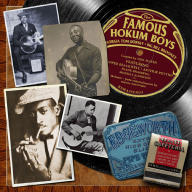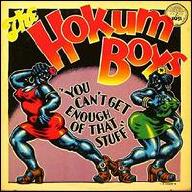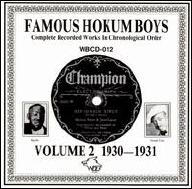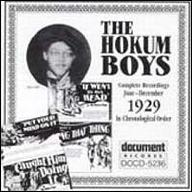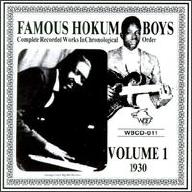The Hokum Boys
from Chicago, IL
formed
January 1, 1929 - January 1, 1937 (age 8)
Biography
The word "hokum" is believed to have descended from the English term "hokey-pokey," denoting both ridicule and the ridiculous; for more than a century "hokey-pokey" has also been used, on both sides of the Atlantic, to describe low-grade ice cream sold on the streets. Hokum can mean flattery, insincerity, derision, deception, nonsense, cheapness, or any sort of stage gimmickry used to elicit a response from jaded audiences. Musically, hokum conveys and deserves most if not all of these meanings. Between the years 1929 and 1937 several different Chicago-based blues/jazz ensembles made records as the Hokum Boys or the Famous Hokum Boys. During the summer of 1929 pianist Alex Hill and guitarists Dan Roberts and Alex Robinson made records for the Paramount label under the name of the Hokum Boys. By early autumn the group consisted of pianist Jimmy Blythe, guitarist Bob Alexander, and a banjoist named Bob Robinson who also played clarinet. In November and December 1929 Ikey Robinson made a series of records for OKeh, first with Jimmy Blythe, then with Alex Hill. Throughout the second half of 1929 these men collaborated with pianist Leroy Carr and guitarist Scrapper Blackwell and made a number of recordings that were issued under the name of the Famous Hokum Boys. The Famous Hokum Boys name was adopted (or hijacked) by Big Bill Broonzy, first in 1930 and 1931, then again between 1935 and 1937 when he made records with various tough customers including Washboard Sam, Black Bob, Casey Bill Weldon, clarinetist Arnett Nelson, bass saxophonist Bill Settles, and a trumpeter named Mr. Sheiks. The only member of the original Hokum Boys to participate in Broonzy's Hokum sessions was Bob Robinson. Various labels have made a point of reissuing every recording known to have been made by these entertaining little bands. ~ arwulf arwulf, Rovi
Top Tracks
Albums
Videos
Close


